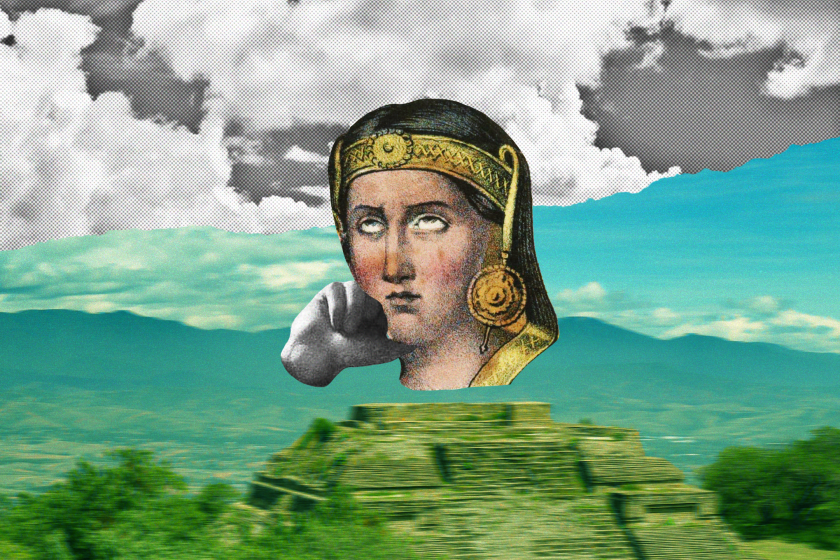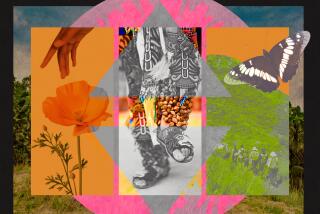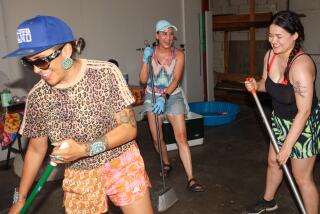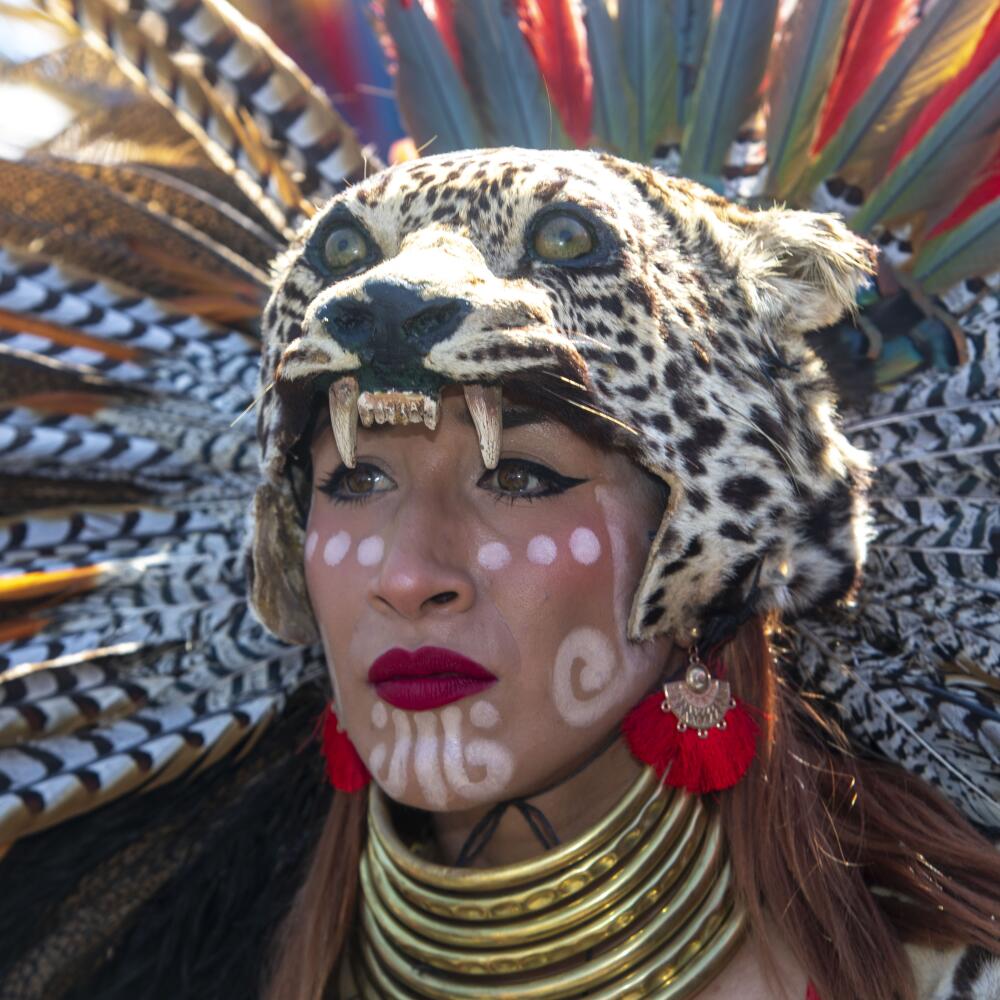
Surrounded by hundreds of people at Malinalli Superfoods in East L.A. on Sunday, members of Winds of the South, a multi-tribal women’s healing collective, sang, prayed and cried to the steady beat of a drum.
The women served as the heartbeat at the Indigenous Peoples Day East Los Angeles Music and Arts Festival, a free, all-day event that included Indigenous singers and dancers, a traditional ballgame demonstration and an artisan market.
For speakers of some of the most commonly spoken native languages like Quechua, Nahuatl or Guarani, the conversation is less about whether you speak Spanish but rather how Indigenous languages are left out of the discussion.
“We sing our prayers for our community, our ancestors,” said Winds of the South member Soledad Gamez, who is Maya. “We educate each other with our Indigenous backgrounds. ... This is a time to put ourselves first with our prayers and heal.”
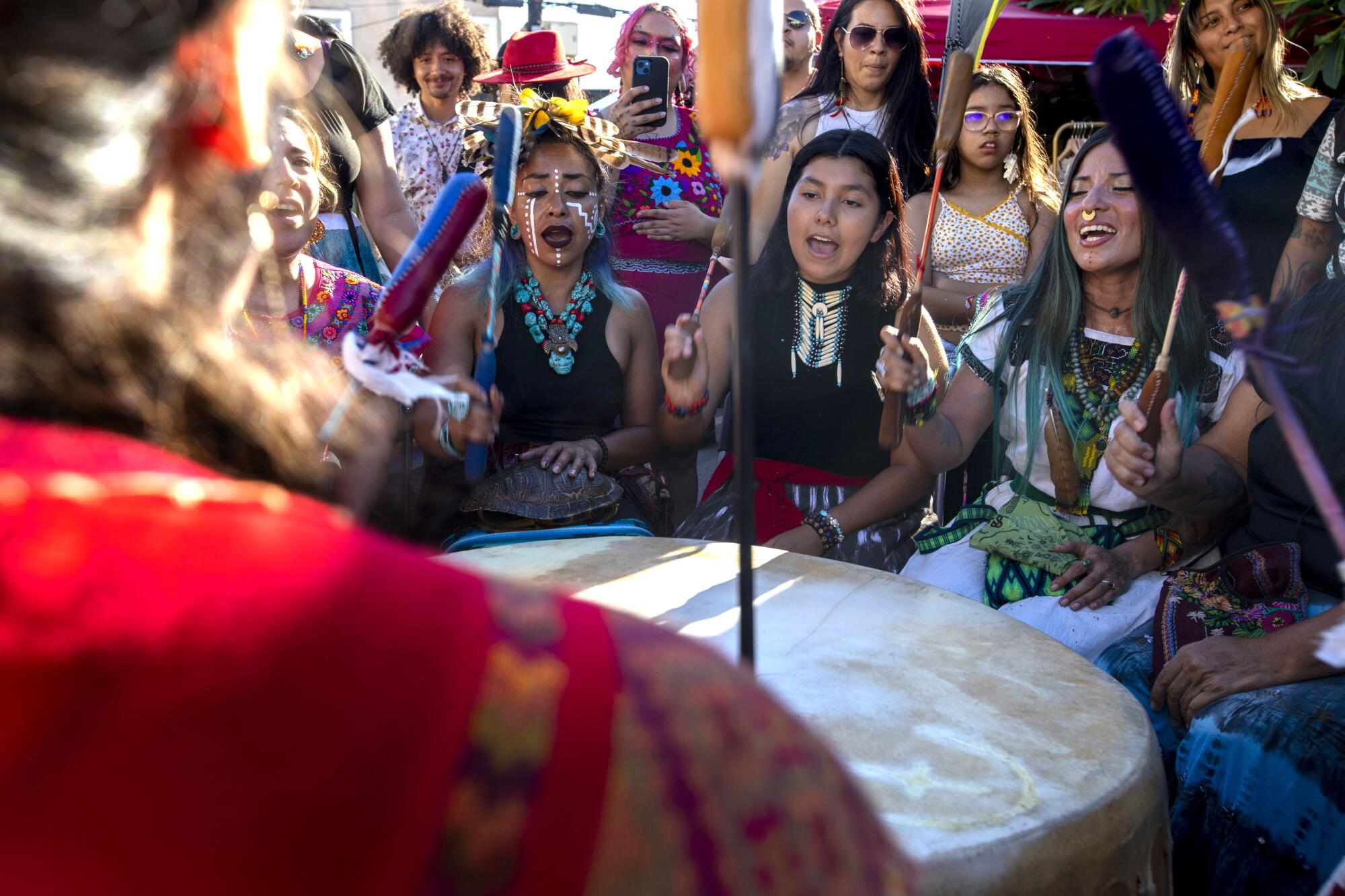
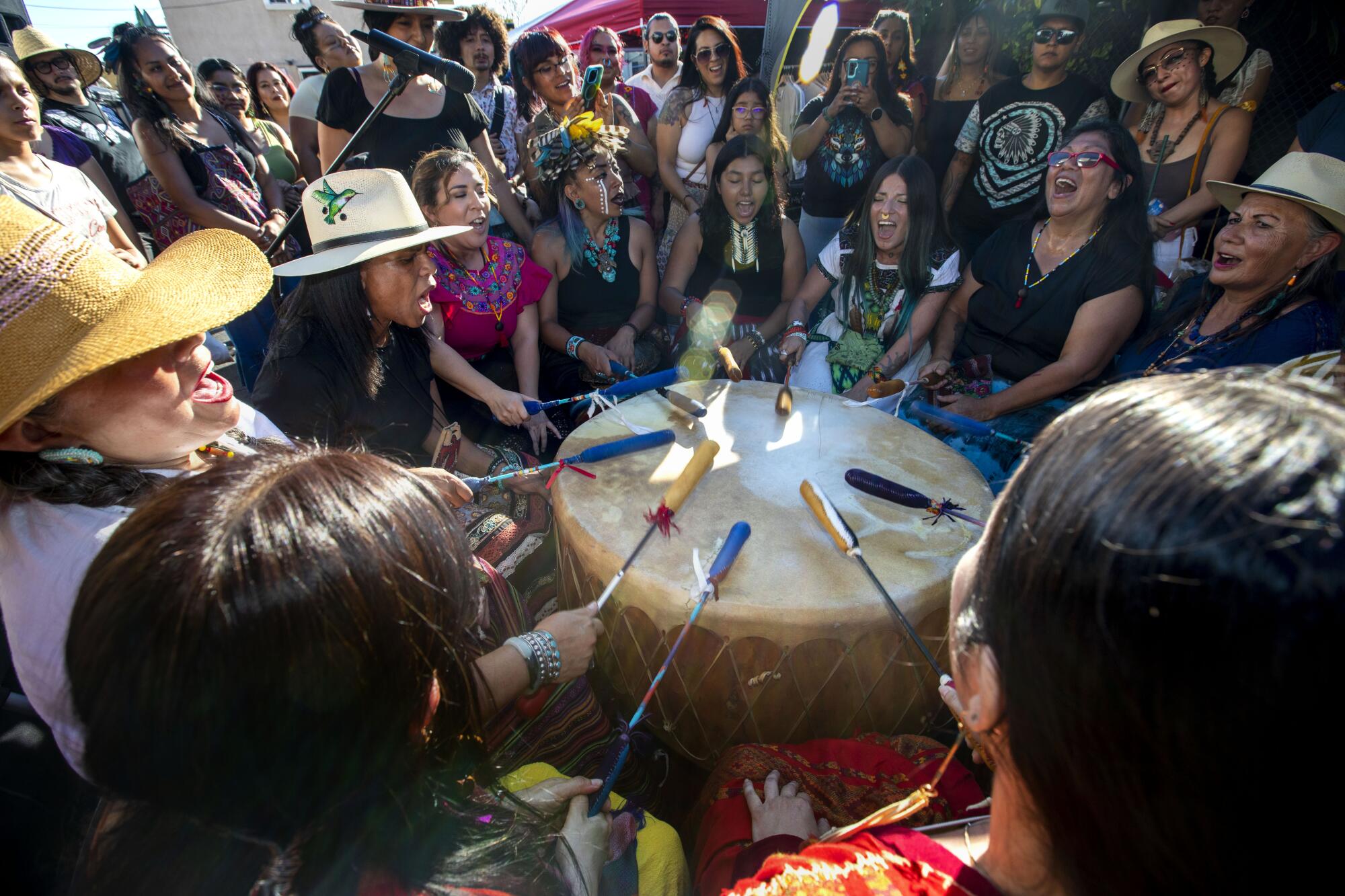
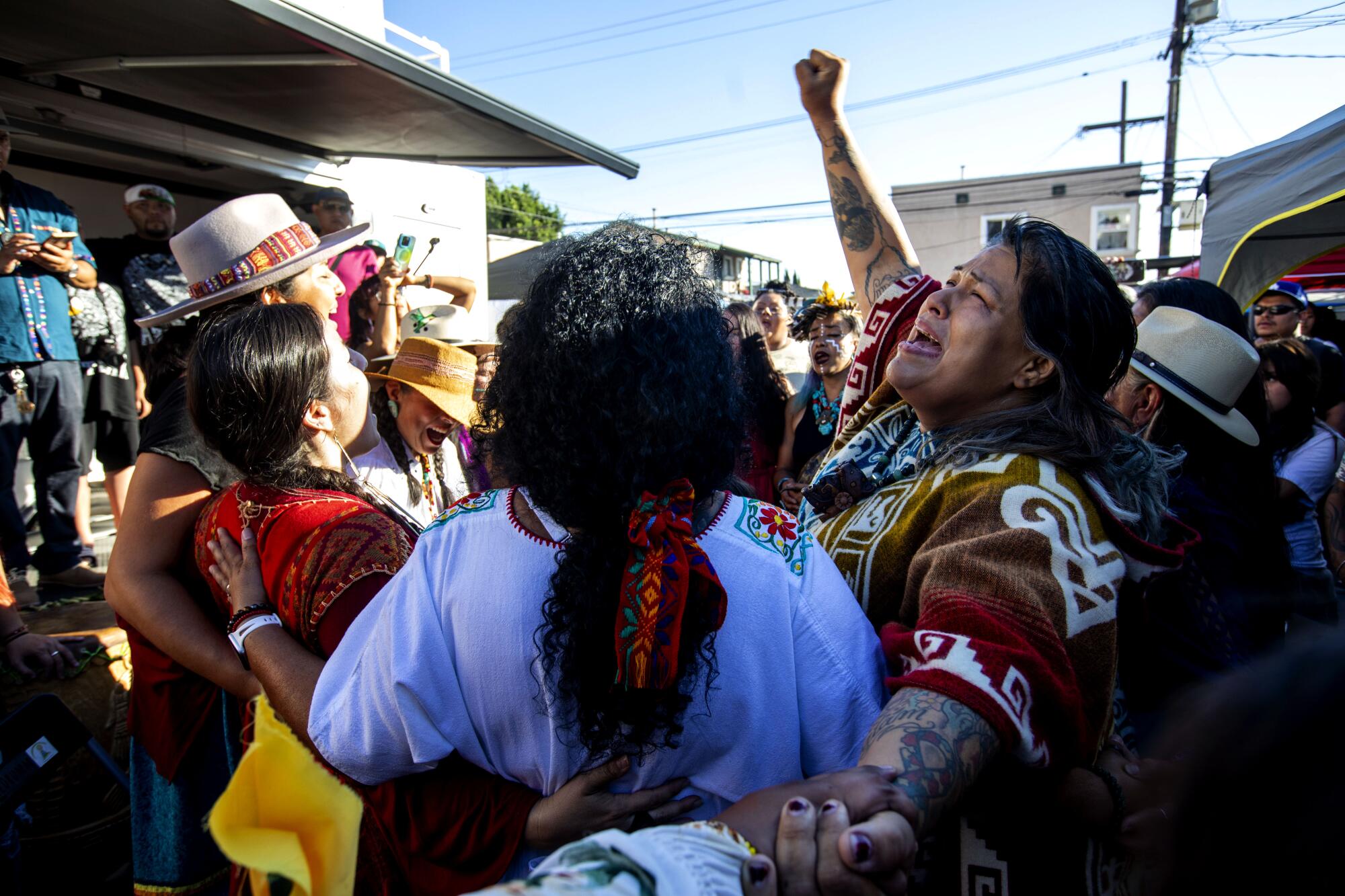
The event was organized by Malinalli Superfoods, a plant-based juice bar and deli, and was meant to unite, uplift and amplify the voices of Indigenous people. In 2017 the city and county of Los Angeles declared the second Monday in October as Indigenous Peoples Day, replacing Columbus Day as a holiday.
The opening ceremony included prayers and traditional Danza Azteca.
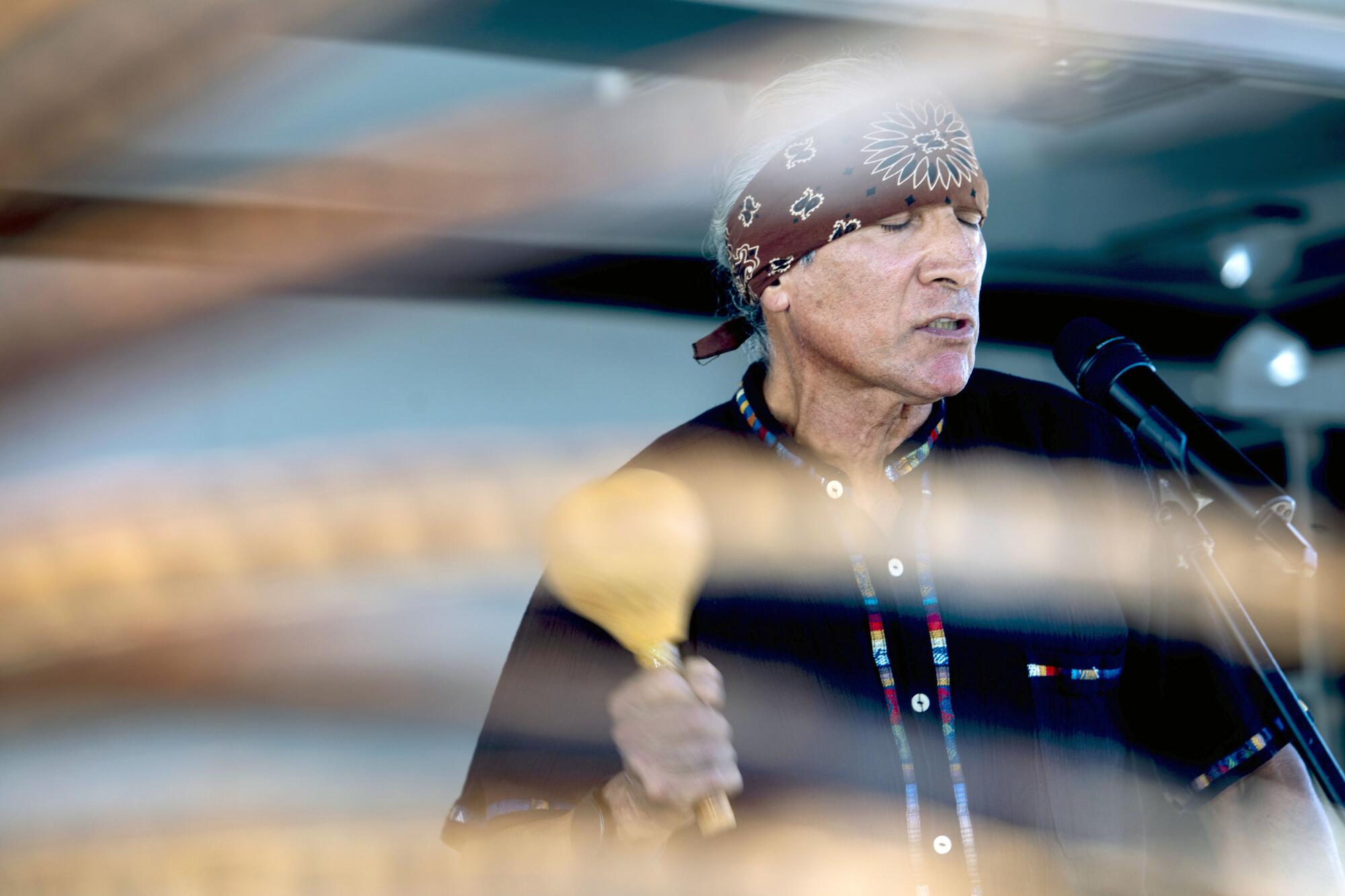
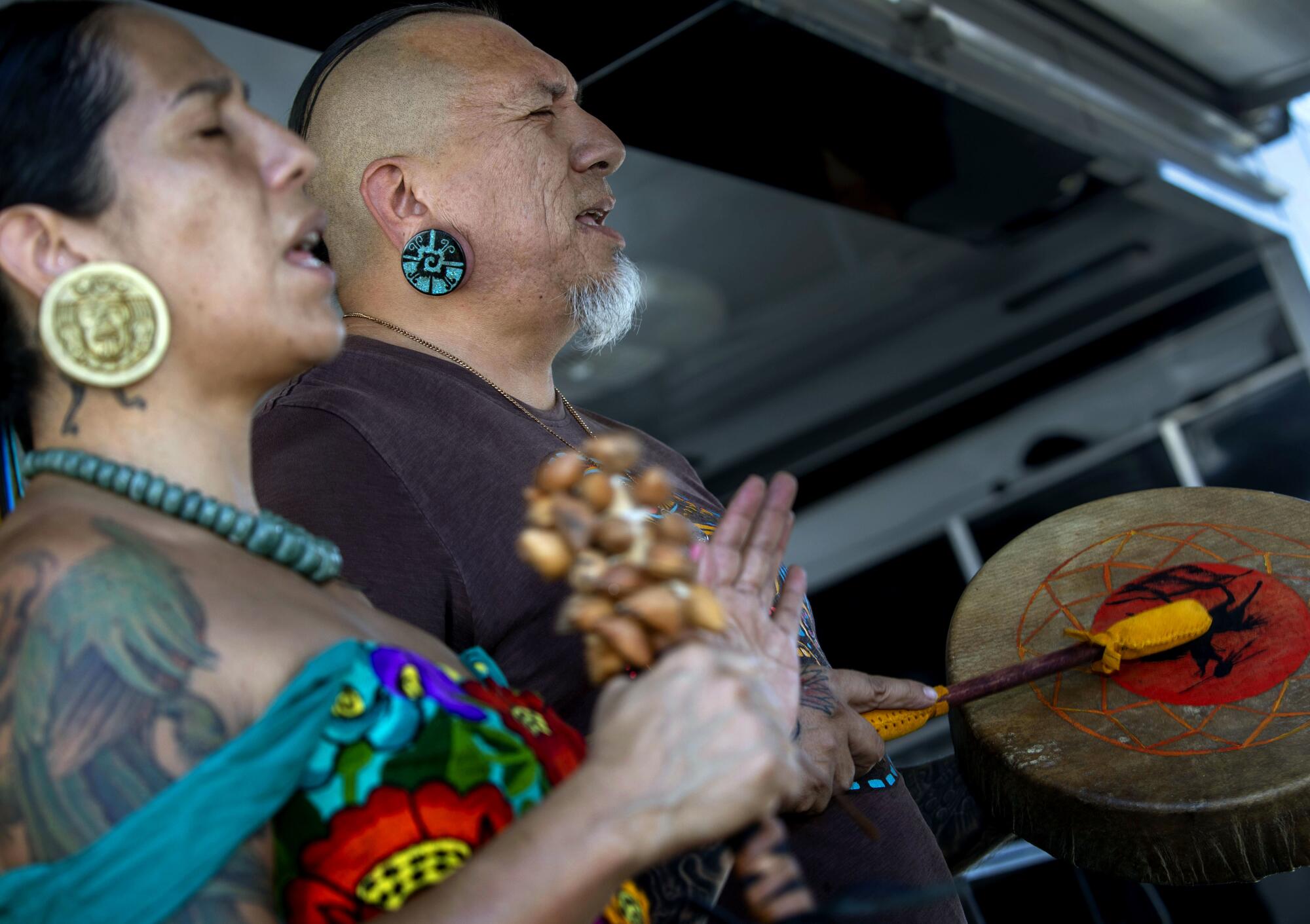
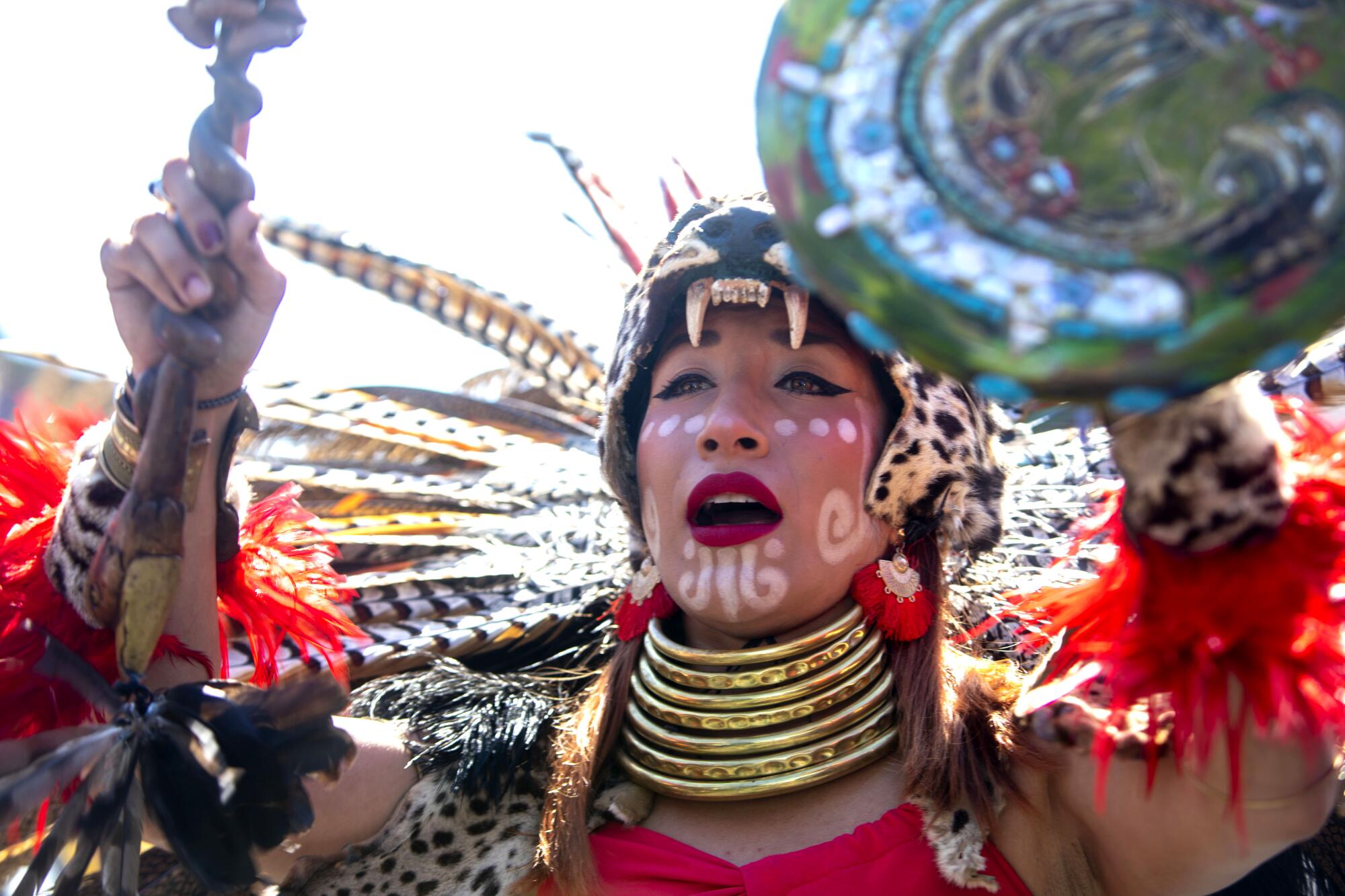
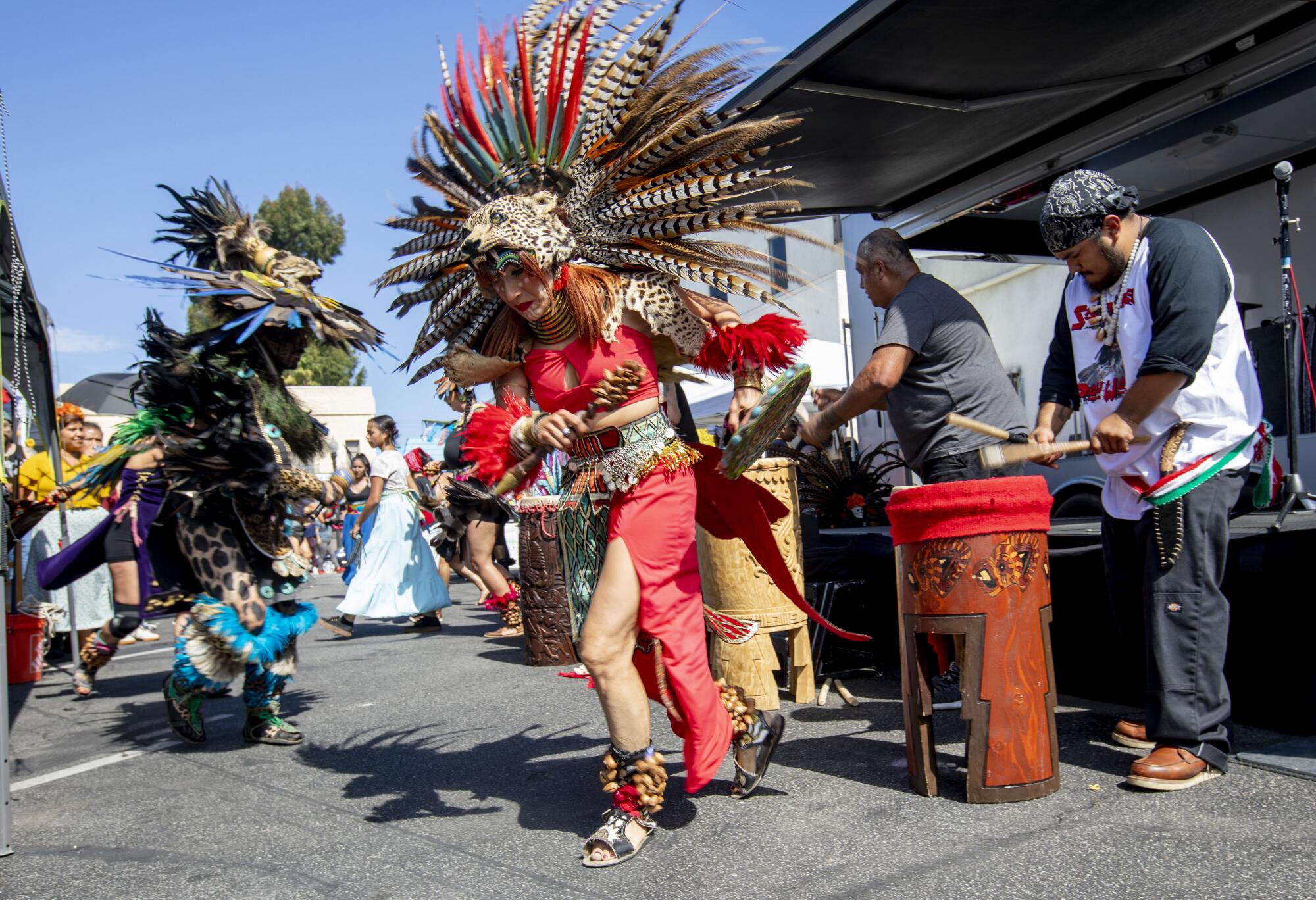
Families shopped along Whittier Boulevard where more than a dozen Indigenous vendors sold leather goods, art, jewelry, clothing and other items. Herbalist Alicia Davalos of Pachamamas Mother Earth Remedies came to sell her teas, pain relief creams and essential oils.
The recognition of Columbus Day represents a desperate need for Americans to feel European.
“Our innate ability is to work with plants, providing an alternative to modern-day medicines or learning to fuse them, because they both have amazing benefits for us,” Davalos said. “My family comes from Mexico, from Michoacán, so I have Purepecha tribe in me, and my grandma worked with herbs. When she passed away, I dreamt of her. She told me, ‘Mija, work with plants.’ She wanted me to continue the lineage.”
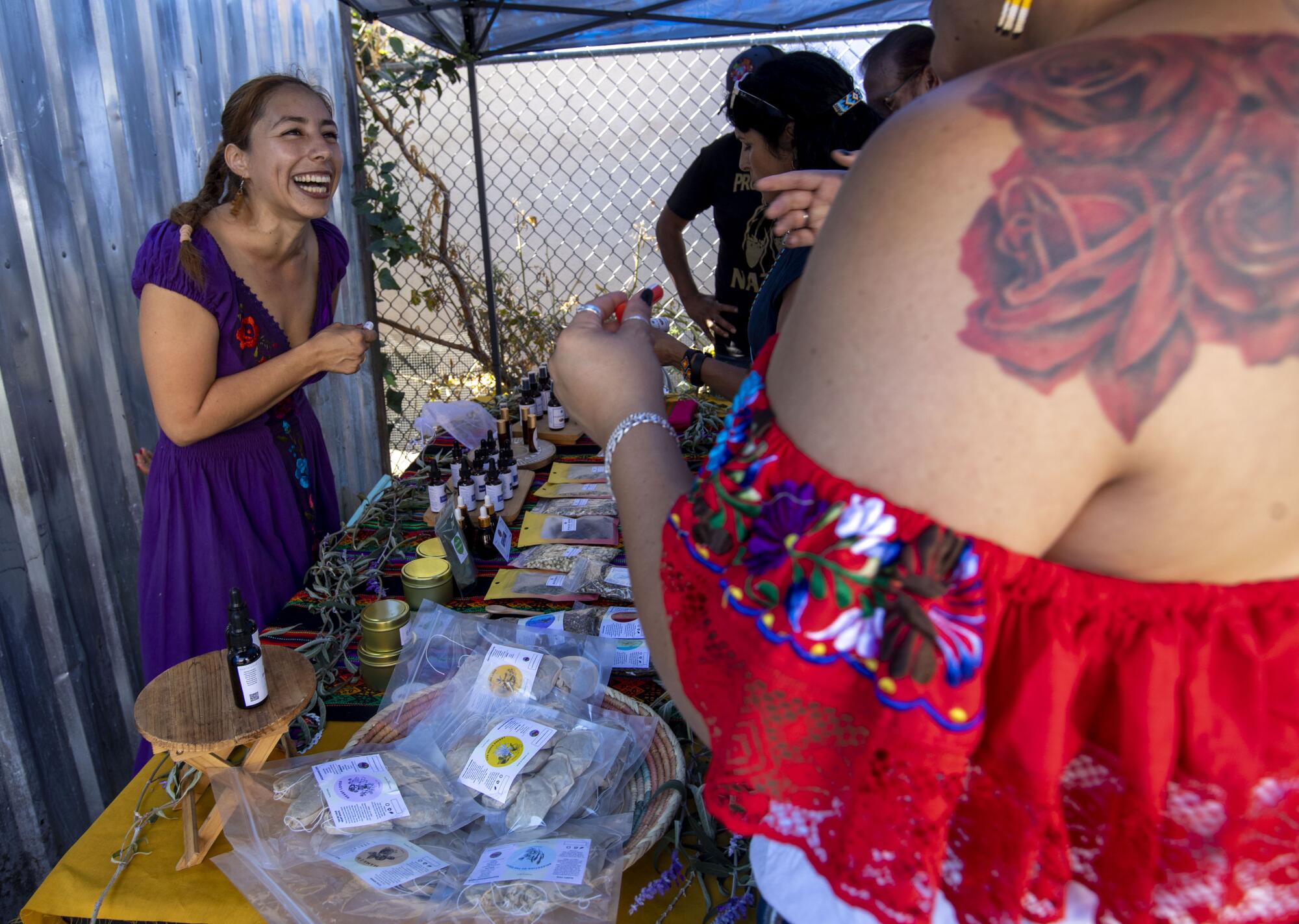
Performances included Eastside acts such as Quinto Sol, CihuatCe Xela De La X as well as alternative hip-hop band Legion X.
“[Music] is like a calling for me because I can share what I’ve learned with like-minded individuals,” said Legion X singer Daniel Ayala, who is Nahua. “The music is against the oppression of people who have tried to cover up our way of life, like they are trying to extinct us. My music is based on trying to reclaim what was taken from us.”
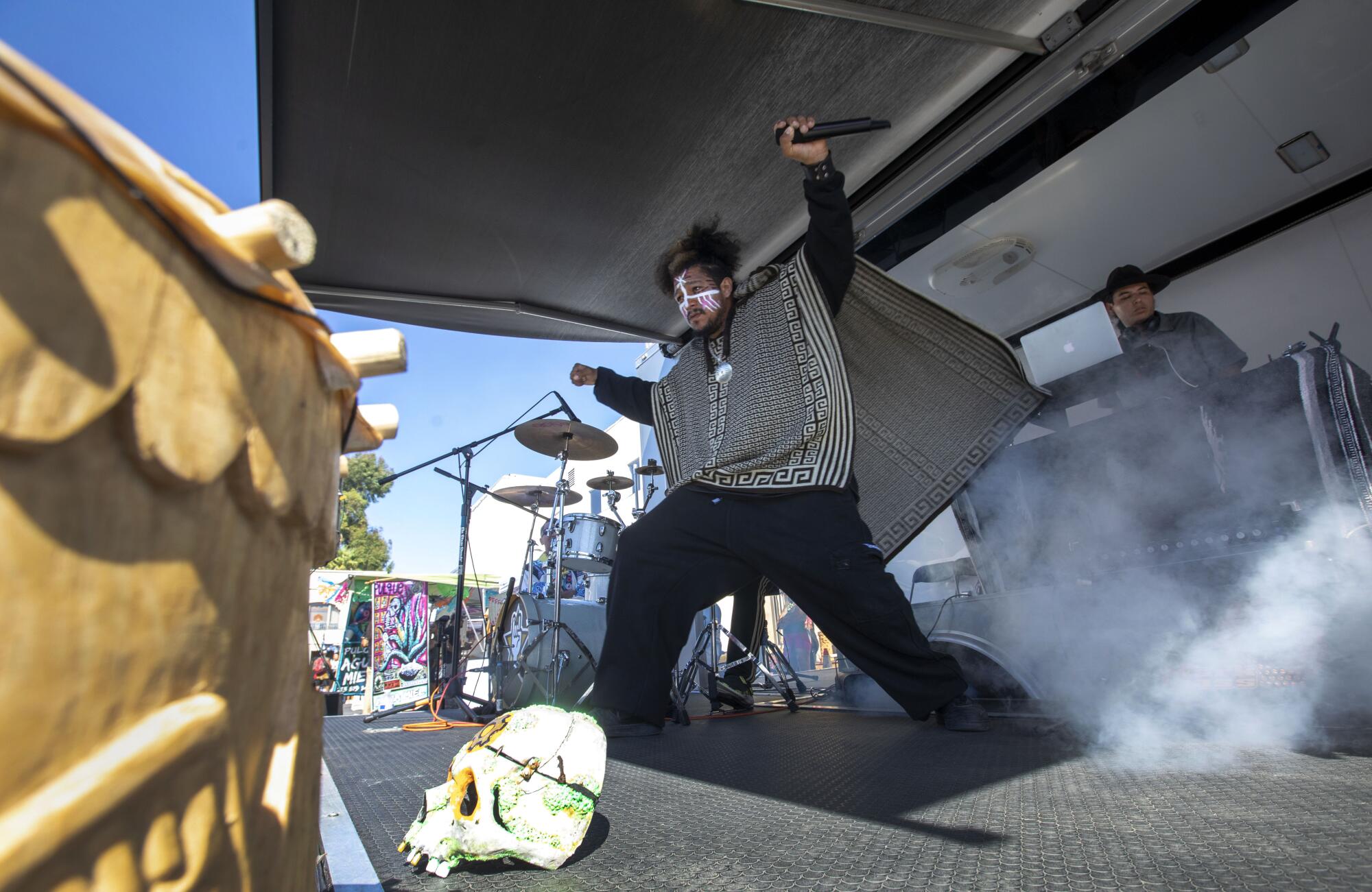
The crowd also gathered to watch a demonstration of a traditional game played by Indigenous cultures. The game uses a rubber ball and is a mix of the Nahua game called Ulama and the P’oktap’ok, a game played by Mayas.
Inglewood resident Jorge Merlos, whose ancestry is Nahua, Maya, Ethiopian and Choctaw, shares the game at different cultural events.
“This game is more than a sport for us,” Merlos said. “It is a way for us to remember our connection to the natural world, our connection to our movements in the environment and, ultimately, to each other as Indigenous people on the planet.”
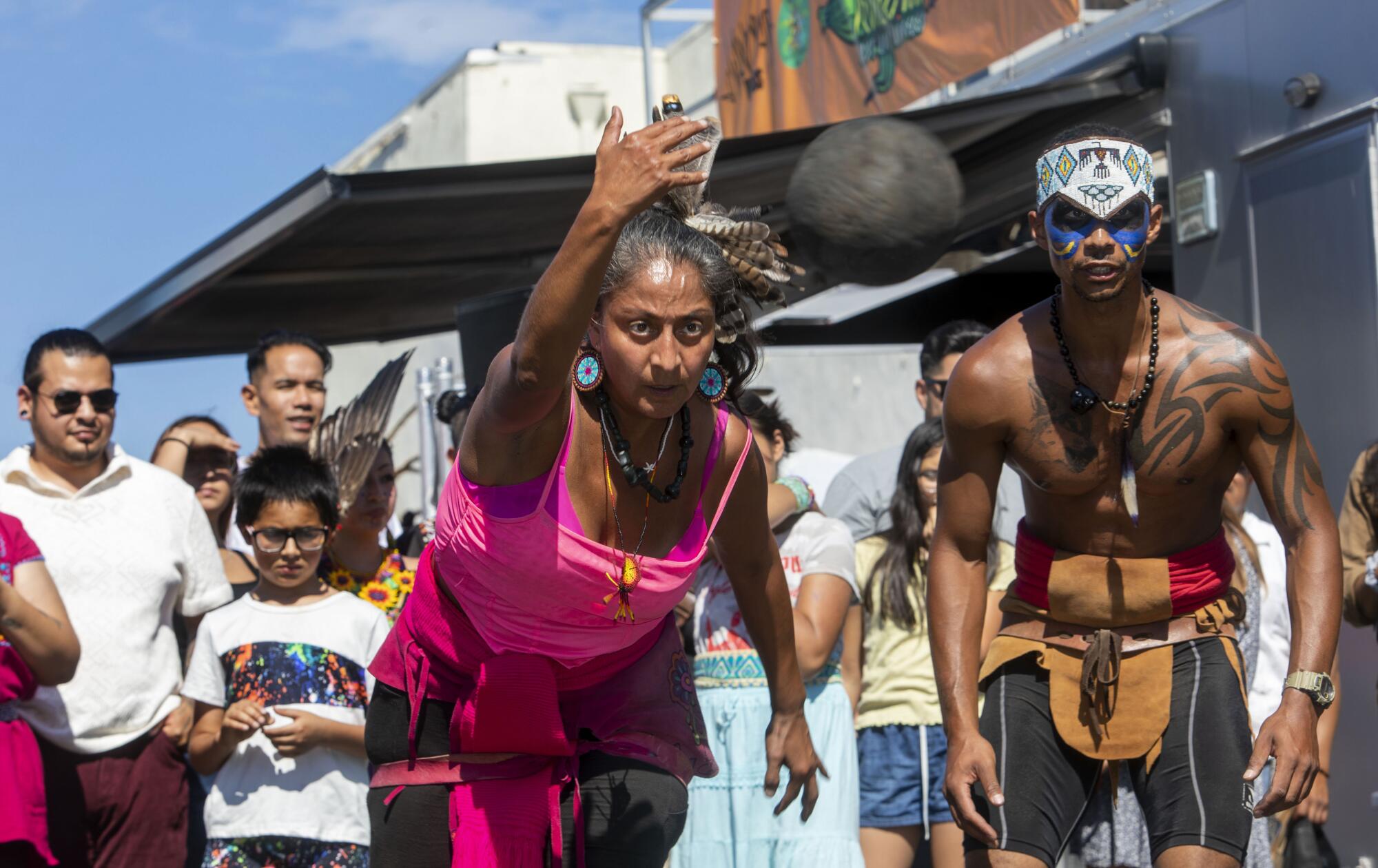
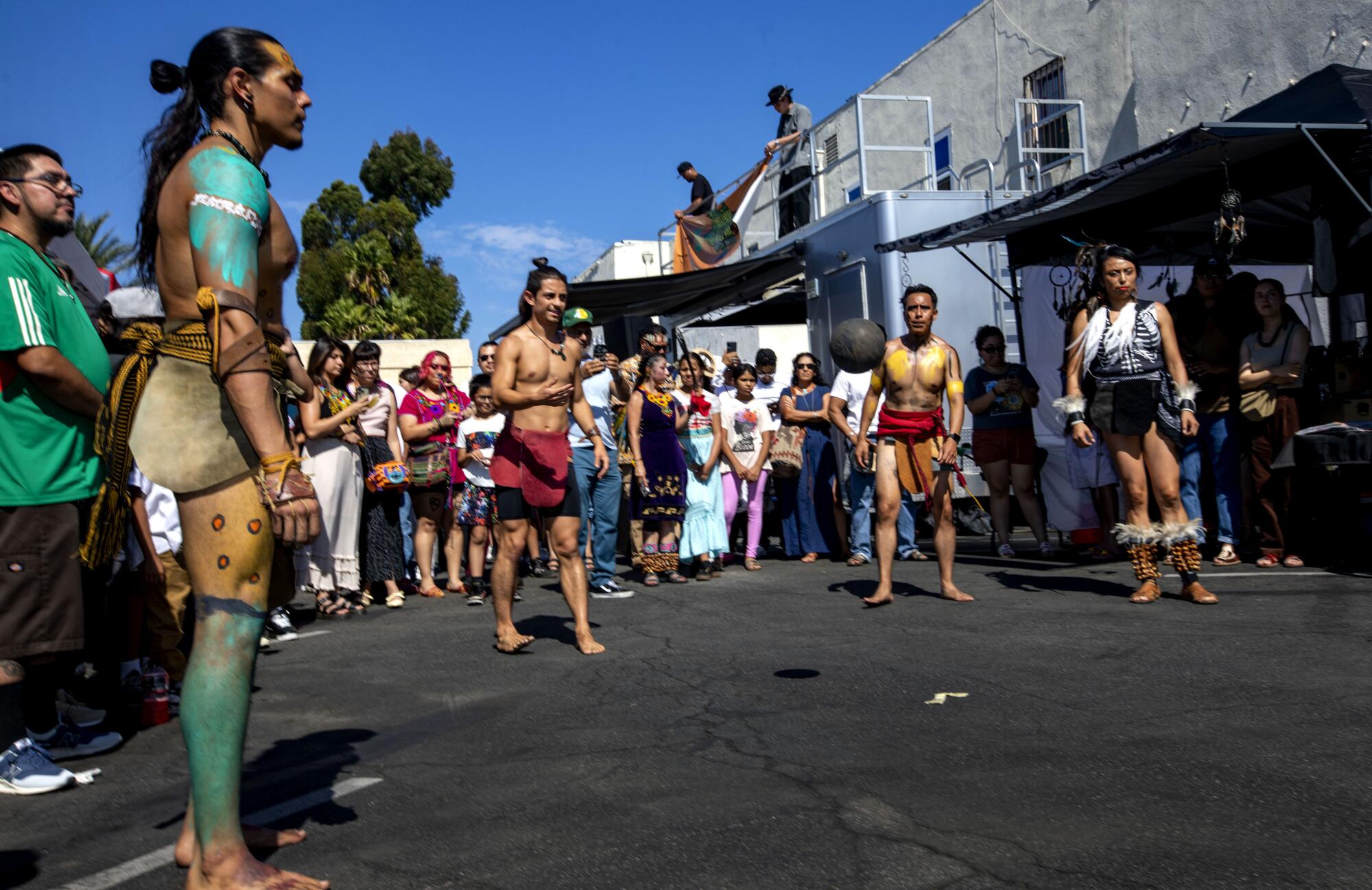
More to Read
The Latinx experience chronicled
Get the Latinx Files newsletter for stories that capture the multitudes within our communities.
You may occasionally receive promotional content from the Los Angeles Times.

